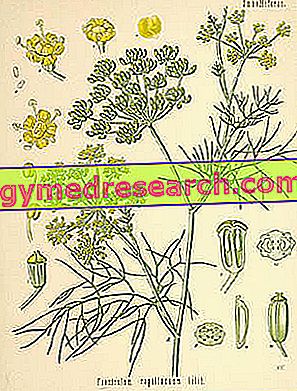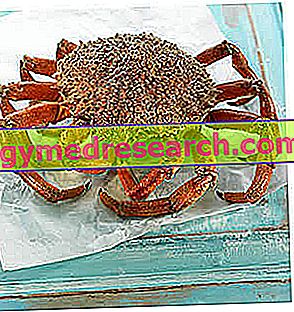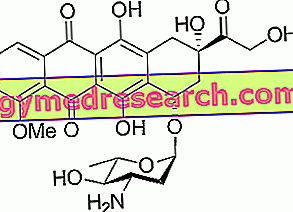Information disseminated by: |
| EMEA (European Medicines Agency) COMMITTEE FOR PLANT-BASED MEDICINAL PRODUCTS (HMPC) FOENICULUM VULGARE MILLER SUBSP. VULGARE VAR. DULCE (MILLER) THELLUNG, FRUCTUS FRUIT OF FENNEL, SWEET Summary of the HMPC assessment report for the public |
What are sweet fennel fruit medicines made up of?

IMPORTANT NOTE: The illustration provided is to give more information on the source of the substance / plant preparation. This illustration is not intended to encourage harvesting in kind.
The sweet fennel fruit medicines contain the fruit of the sweet fennel plant. The Latin botanical name of the plant is Foeniculum vulgare Miller subsp. vulgare var. dulce (Miller) Thellung.
Sweet fennel is a spontaneous plant that grows in most of the temperate regions of Europe, but it is believed to be indigenous to the shores of the Mediterranean from which it spread eastward to India. The plant is cultivated to obtain fruits (commonly called fennel seeds) intended for medical use (vegetable substance).
Sweet fennel fruit medicines are available in various forms to be taken orally, such as herbal teas, tablets, capsules. They are obtained from the dried fruit, comminuted, crushed or powdered.
The preparations obtained from the sweet fennel fruit are also available in combination with other vegetable substances. The medicinal products resulting from these combinations will be the subject of a separate evaluation by the HMPC.
What are sweet fennel fruit medicines used for?
Sweet fennel fruit medicines are traditionally used in the following cases:
- for the symptomatic treatment of gastrointestinal disorders referable to spasms of mild intensity, including meteorism and flatulence,
- for the symptomatic treatment of spasms (cramps) of mild intensity associated with the menstrual cycle,
- as an expectorant (to promote the expulsion of mucus) in case of a cough associated with a cold.
The HMPC came to these conclusions after evaluating the bibliographic data available on sweet fennel fruit based preparations. The use of these preparations is justified by their traditional use as medicinal products of plant origin.
Many traditional herbal medicines have not been subjected to a complete examination with current scientific methods. The Community pharmaceutical legislation provides the opportunity to officially register traditional plant-based medicines, based on their traditional use, if they can be used safely without the intervention of a doctor as regards diagnosis, treatment and follow-up. This traditional use must cover a period of at least 30 years, of which 15 years within the Community.
How to use sweet fennel fruit medicines?
Sweet fennel fruit medicines can be used from the age of 4 years. The use of sweet fennel fruit medicines in children under 4 years of age is not recommended, since there is not enough information on the safety of the product for this age group.
The dosage and frequency of administration of sweet fennel fruit medicines depend on the purpose for which they are used and the formulation of the medicine in question. For detailed instructions, refer to the leaflet accompanying each individual product.
Generally they are taken three to four times a day and usually for a period not exceeding 1-2 weeks. For more information, see the "Specific Posology" section of the Community list of sweet fennel fruit.
How do sweet fennel fruit medicines work?
In the preparations containing sweet fennel fruit many components have been identified and it is not possible to define precisely the action of each component.
Clinical studies on sweet fennel fruit medicines are scarce; however the pharmacological data corroborate the plausibility of the traditional use of these medicines.
Studies on the isolated components of these medicines could not fully explain the activity of the medicines; therefore it is believed that different components of sweet fennel fruit preparations act together to produce their effects.
What studies have been carried out on sweet fennel fruit medicines?
What studies have been carried out on sweet fennel fruit medicines?
Since the sweet fennel fruit has been used for a long time, the data examined by the HMPC include the results of studies from the scientific literature, including studies that resort to experimental models.
A relaxing effect of fennel alcohol and fennel essential oil on smooth contracted muscles was found.
Furthermore, an anti-inflammatory effect has been reported following oral administration in rats. It has been observed that several compounds found in the fennel fruit inhibit the growth of pathogenic bacteria and fungi. The relaxing and anti-inflammatory effect combined with the antimicrobial action of their components could contribute to the traditional use of sweet fennel-based medicines in the treatment of gastrointestinal disorders referable to mild spasms and coughs associated with colds.
Furthermore, the secretolytic and expectorant effect of two main components of the sweet fennel fruit (anethole and estragole) observed in a study conducted on rabbits could also confirm the plausibility of the traditional use of fennel in case of cough associated with colds .
There are few studies on the safety of sweet fennel fruit preparations, but the many years of experience of their use in humans show that they are sufficiently safe.
Long-term use for more than 30 years and limited experimental studies make traditional use plausible in the aforementioned indications.
What is the risk associated with sweet fennel fruit medicines?
Generally, sweet fennel fruit medicines are well tolerated. The most common side effects of sweet fennel fruit medicines are related to allergic reactions to the skin or the respiratory system.
Sweet fennel fruit medicines should not be used in people who may be hypersensitive (allergic) to sweet fennel.
For the full list of side effects reported for a given medicinal product based on sweet fennel fruit, see the Package Leaflet.
As no tests have been performed on the effects of sweet fennel fruit medicines during pregnancy or lactation, as a precaution, these medicines should not be given to women during pregnancy or breastfeeding.
More information on sweet fennel fruit medicines?
The use of sweet fennel fruit as a medicinal product is part of traditional European herbal medicine and also of traditional Chinese medicine.
Important information on the use of a traditional plant-derived medicine can be found in the leaflet accompanying each individual product. This information should always be read carefully before using a product.



